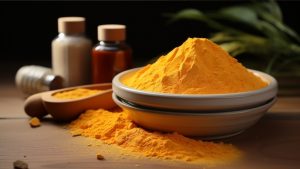Effects of Ginkgo flavonoids
What is ginkgo leaf?
Ginkgo leaf is the most valuable part of the Ginkgo tree. Its extract is rich in terpenoids, flavonoids and proanthocyanidins. It has antioxidant, anti-inflammatory, vasodilatory and platelet inhibitory effects. It has been widely used in the past century. It is used to improve blood circulation disorders, tinnitus, dizziness and cognitive deterioration.
What are the proven effects of Ginkgo extract?
Beneficial for ischemic stroke
Stroke is the second most common cause of death and the third most common cause of disability in the world, with 68% of strokes being ischemic and 32% hemorrhagic.
The most important factor in the treatment of acute ischemic stroke is time. Patients lose 190,000 brain cells, 140,000 nerve connections and 12 kilometers of nerve fibers every minute.
For every hour that blood supply to the brain stops, the brain ages by 3.6 years. There are two main treatments for acute ischemic stroke, intravenous thrombolysis and mechanical thrombectomy.
A systematic literature review and meta-analysis (Meta-Analysis, including 13 randomized controlled trials with a total of 1260 ischemic stroke patients) pointed out that auxiliary treatment with ginkgo leaf preparations has a positive effect on the neurological function of patients (based on the United States There was an improvement effect on the National Institutes of Health Stroke Scale/NIHSS), activities of daily living (measured by the Pap scale), and hemorrheological indicators (plasma viscosity and fibrinogen).
For patients with ischemic stroke, auxiliary treatment with Ginkgo biloba preparations may be of positive help, but due to the small sample size and possible result bias, more large-sample and high-quality trials are still needed for further verification.
Beneficial for sudden deafness
Sudden deafness (sudden sensorineural hearing loss) is an otological emergency defined as an audiogram loss of at least 30 dB in three frequencies within three days (incidence range from 2 to 1 per 1 million adults 30 people) generally affects people in their fifth or sixth decade, and it can occur as part of a systemic disease or without any identifiable systemic or local abnormality, the latter being called “idiopathic”
Most patients present with unilateral hearing loss. However, as many as 2%-3% of patients experience bilateral hearing loss, and approximately 4%-8% of patients are found to develop Ménière’s disease in subsequent years.
It has been observed that 32%-65% of patients with idiopathic SSNHL can recover spontaneously, and natural recovery often occurs within the first two weeks. Spontaneous recovery beyond 3 months is unlikely.
A systematic literature review and meta-analysis (including 11 randomized controlled trials with a total of 1069 participants with sudden deafness) pointed out that compared with patients who received corticosteroids alone, Ginkgo biloba extract plus corticosteroids Steroids can help improve clinical cure rate and total effective rate. Related indicators include: mean pure tone hearing threshold, whole blood high-shear viscosity, whole blood mid-shear viscosity, whole blood low-shear viscosity, plasma viscosity and fibrinogen.
As an adjuvant therapy, Ginkgo biloba extract may be able to bring positive help to sudden deafness, but due to the low methodological quality and high risk of bias of the samples included, more studies are still needed for further verification.
Good for angina pectoris
Angina is a painful or contracting discomfort that usually occurs in the front of the chest (but may also radiate to the neck, shoulders, jaw, or arms) and is common in people with stable ischemic heart disease
It is the primary symptom of myocardial ischemia, usually caused by obstructive coronary artery disease, which limits the supply of oxygen to heart muscle cells and can be triggered by physical exertion or emotional stress.
A literature meta-analysis (Meta-Analysis, including 41 randomized controlled trials with a total of 4,462 angina patients) pointed out that compared with drug treatment alone, the combined use of Ginkgo Damo injection and drugs can improve the overall effectiveness of treatment, and the overall ECG Efficient.
In addition, combined therapy also reduced plasma viscosity, fibrinogen, whole blood low-shear viscosity, and whole blood high-shear viscosity.
The combined therapy of Ginkgo injection and drugs has better therapeutic effect on patients with angina pectoris. However, due to the limitation of method quality, more research is needed to further verify it.
Beneficial for vertebrobasilar insufficiency
Vertebrobasilar insufficiency is ischemia of the brainstem, cerebellum, thalamus, or occipital cortex caused by stenosis or occlusion of the vertebrobasilar artery.
Dizziness, vertigo, headache, vomiting, diplopia, blindness, ataxia, and weakness on both sides of the body are the most common symptoms, bringing great pain and inconvenience to patients’ lives and work.
Risk factors include: smoking, hypertension, age, gender, family history and genetics, and hyperlipidemia.
A systematic literature review meta-analysis (meta-analysis, including 20 randomized controlled trials, a total of 1710 patients with vertebrobasilar circulatory insufficiency) pointed out that Ginkgo injection (a total of 4 types) can improve the effectiveness of clinical treatment as an adjuvant treatment with drugs. It is always effective, especially the effect of Ginkgo Damo injection is the most significant.
In addition, Ginkgo biloba extract injection (EGb) and Shuxuening injection (SXN) were the most effective in improving transcranial Doppler ultrasound and blood viscosity-related indicators respectively.
For patients with vertebrobasilar circulatory insufficiency, the use of additional therapy with Ginkgo Injection can bring positive help, but due to the limited sample size and quality of the included trials, more large-scale studies are still needed to support it.
Beneficial for Alzheimer’s disease
Alzheimer’s disease, also known as Alzheimer’s disease, is the most common irreversible, progressive cause of dementia. It is characterized by progressive loss of memory and cognitive abilities. The most important risk factor is age. Prevalence increases exponentially after the age of 65. As average life span increases in developing countries, the overall prevalence is expected to increase within 20 years. Double the growth.
Its pathological features are characterized by the presence of amyloid plaques and neurofibrillary tangles in the intracellular environment, neuronal death, and synaptic loss, all of which lead to a progressive decline in cognitive abilities.
A meta-analysis of the literature (including 7 double-blind randomized controlled trials with a total of 939 Alzheimer’s patients) pointed out that Ginkgo biloba has an improving effect and has a good safety profile.
For Alzheimer’s disease, the use of Ginkgo biloba preparations may bring positive help, but it is limited by the small sample size and the short intervention period, and more long-term large-scale trials are still needed to confirm it.
Beneficial for improving tinnitus
Tinnitus is the perception of sound in the absence of any external stimulation. Symptoms can be unilateral or bilateral, may be accompanied by hearing loss, and may resemble a hissing, whistling, buzzing, or chirping sound.
Epidemiological studies have found that most people have experienced tinnitus, and 10% to 15% will experience it intermittently. The most common groups are the elderly (peak at 60 to 69 years old), those with a body mass index of 30 kg/m2 or above, Smoking, diabetes, and high blood pressure are common
Even if most people can learn to ignore phantom voices, about 3% of patients have tinnitus that seriously affects their quality of life, possibly causing irritability, restlessness, stress, insomnia, anxiety and depression.
A Cochrane systematic literature review (including 4 randomized controlled trials with a total of 1543 participants) pointed out that the use of Ginkgo biloba extract did not significantly help patients with primary tinnitus.
However, for the tinnitus associated with vascular dementia and Alzheimer’s disease, the use of ginkgo extract may have a small but statistically significant improvement effect.
As of now, there is not enough evidence to prove that ginkgo extract can improve primary tinnitus, and more research is needed to further verify it.
Beneficial for acute mountain sickness
Acute mountain sickness/altitude sickness usually occurs at altitudes above 2,500 meters (about 8,000 feet). It usually appears 4 to 24 hours after ascending to a new altitude and disappears within 2 to 3 days at the same altitude.
It is characterized by partial or complete symptoms such as headache, weakness, fatigue, listlessness, nausea, insomnia, and loss of appetite.
A systematic literature review and meta-analysis (including 7 randomized controlled trials with a total of 451 participants) pointed out that the meta-analysis found that although ginkgo leaf extract may have a tendency to prevent acute mountain sickness/altitude sickness, the effect Not statistically significant (subgroup analysis also showed similar conclusions).
So far, data show that although Ginkgo leaf extract may have the tendency to prevent acute mountain sickness/altitude sickness, the relevant evidence is still insufficient and more large-scale studies are needed for further verification.
Prevent or improve dementia
Dementia is a progressive disease of memory loss and cognitive impairment. The most common type is Alzheimer’s disease, which accounts for about two-thirds of all cases.
The Diagnostic and Statistical Manual of Mental Disorders (DSM)-IV defines dementia as a decline in memory combined with impairment of at least one cognitive function, such as skilled movement (apraxia of limbs), language (aphasia), or executive function (such as counting). drawing, attention and abstract reasoning) and cannot be explained by other mental illnesses, such as mood disorders
A systematic literature review and meta-analysis (including 4 randomized, placebo-controlled trials, a total of 1628 patients with mild to moderate Alzheimer’s or vascular dementia) pointed out that,
Oral administration of Ginkgo biloba extract (EGb 761) can help improve neuropsychiatric symptom scales and caregiver scores. Improvement indicators include: depression, restlessness, anxiety, aggression, abnormal motor behavior, apathy, sleep, nighttime behavior, anxiety, Irritability and instability, but no significant improvement in psychotic symptoms such as delusions, hallucinations, and elation/euphoria.
In addition, regarding the preventive effect, a meta-analysis (including 2 studies with a total of 5,889 participants) pointed out that ginkgo leaf extract cannot prevent the occurrence of dementia.
The molecular mechanism of Ginkgo leaf extract against dementia may be related to its anti-free radical and neuroprotective properties. It has potential effects such as reducing beta-amyloid accumulation, improving mitochondrial function, reducing blood viscosity, and improving nerve conduction.
According to current evidence, ginkgo leaf extract cannot prevent the occurrence of dementia, but for patients who are already suffering from the disease, the use of ginkgo leaf preparations may bring positive help
Improve memory and concentration
As we get older, most people have the experience of forgetting things. It may be that they forget to take the keys when they go out, forget what they said in the last sentence, etc. Most people can remember it if they think about it carefully or are reminded by others. This kind of phenomenon is often caused by It is caused by the weakening of memory capacity and speed, which is considered a normal phenomenon.
And having a good memory is an important weapon to maintain competitiveness, whether in study, work, life or social life.
A comprehensive analysis of the literature pointed out that for people in good health, the effect of ginkgo leaf extract on improving memory, executive ability and concentration is not only insignificant, but also close to zero (the relevant effect size is related to age, duration, dose and recipes are not related).
Ginkgo leaf extract has no significant effect on improving memory and related cognitive abilities
Improve peripheral arterial disease: intermittent claudication
Intermittent claudication is mainly caused by blockage of arteries in the lower limbs, resulting in lack of blood circulation in surrounding tissues.
Claudication usually occurs during exercise (especially walking). The symptoms include pain, cramps, fatigue and other discomforts in the lower legs, which will return after a period of rest.
Ginkgo leaf extract is thought to be helpful in treating peripheral arterial disease due to its effects on promoting circulation, vasodilation and anti-platelet coagulation.
A Cochrane database of systematic reviews (cochrane database of systematic reviews, including 14 randomized controlled trials with a total of 739 patients with intermittent claudication) pointed out that although taking ginkgo leaf extract helped improve walking distance (increased by 64.5 meters), it was relatively There was no significant difference in improvement compared to placebo.
Ginkgo biloba extract has no clinically significant effect on improving intermittent claudication
Improve tardive dyskinesia
Tardive dyskinesia is a common side effect after taking antipsychotic drugs (prevalence rate is about 20%-30%). It mainly causes involuntary muscle twitching, with the facial and oral muscles most commonly affected, resulting in Slurred speech or difficulty swallowing, which may even affect the respiratory tract, causing life-threatening consequences
A meta-analysis of the literature (Meta-analysis, including 3 randomized controlled trials involving 299 schizophrenia patients with tardive dyskinesia) found that compared with medication alone or placebo, Ginkgo biloba extract (Optimum dose is 240 mg daily) The combination improved the severity and clinical symptoms of tardive dyskinesia as measured by the AIMS scale.
The mechanism behind this is related to the free radical scavenging ability of Ginkgo biloba extract, increasing the level of brain-derived neurotrophic factor, and reducing neurotoxicity.
For tardive dyskinesia caused by antipsychotic drugs, the combined use of Ginkgo biloba extract can reduce the severity of this phenomenon.



